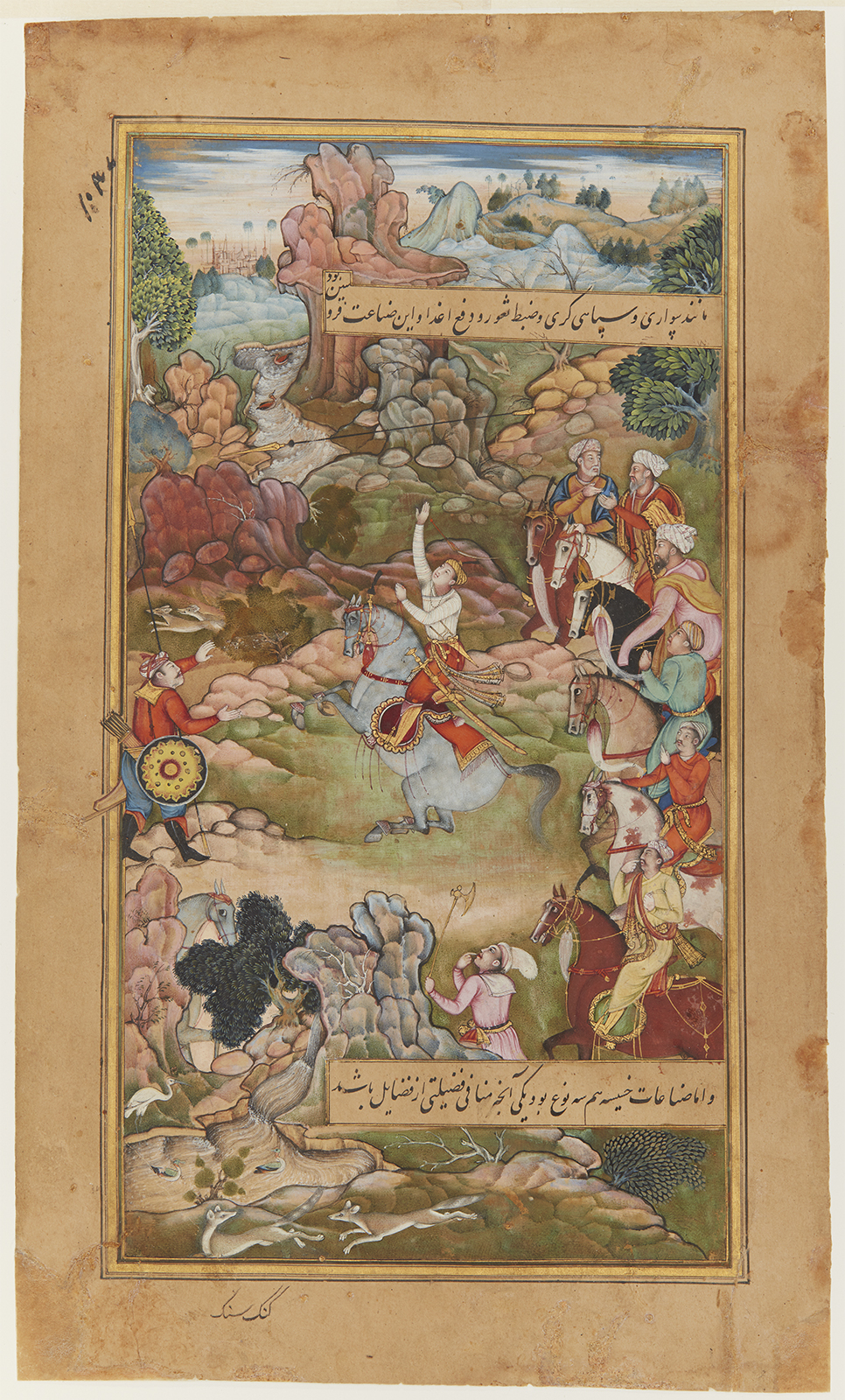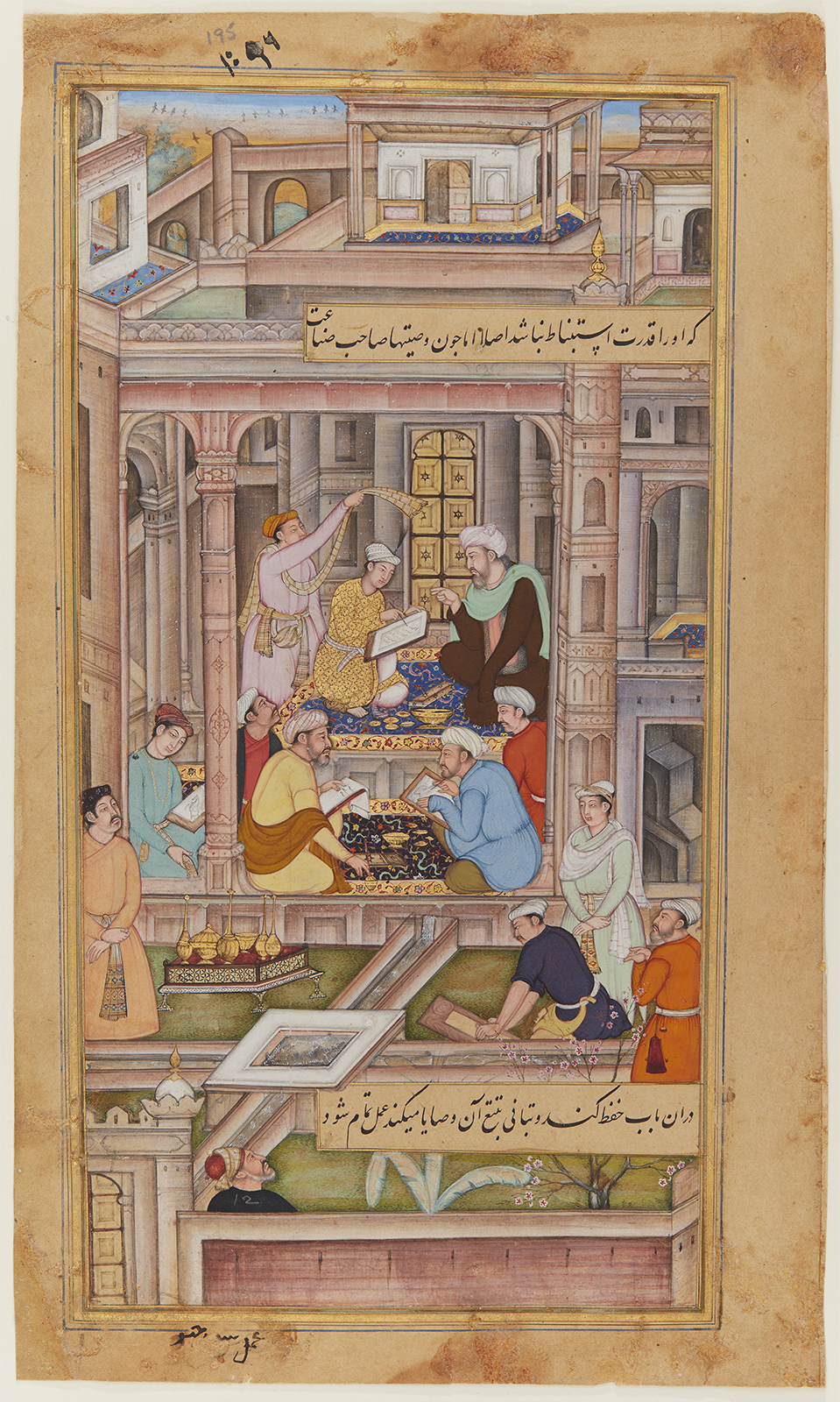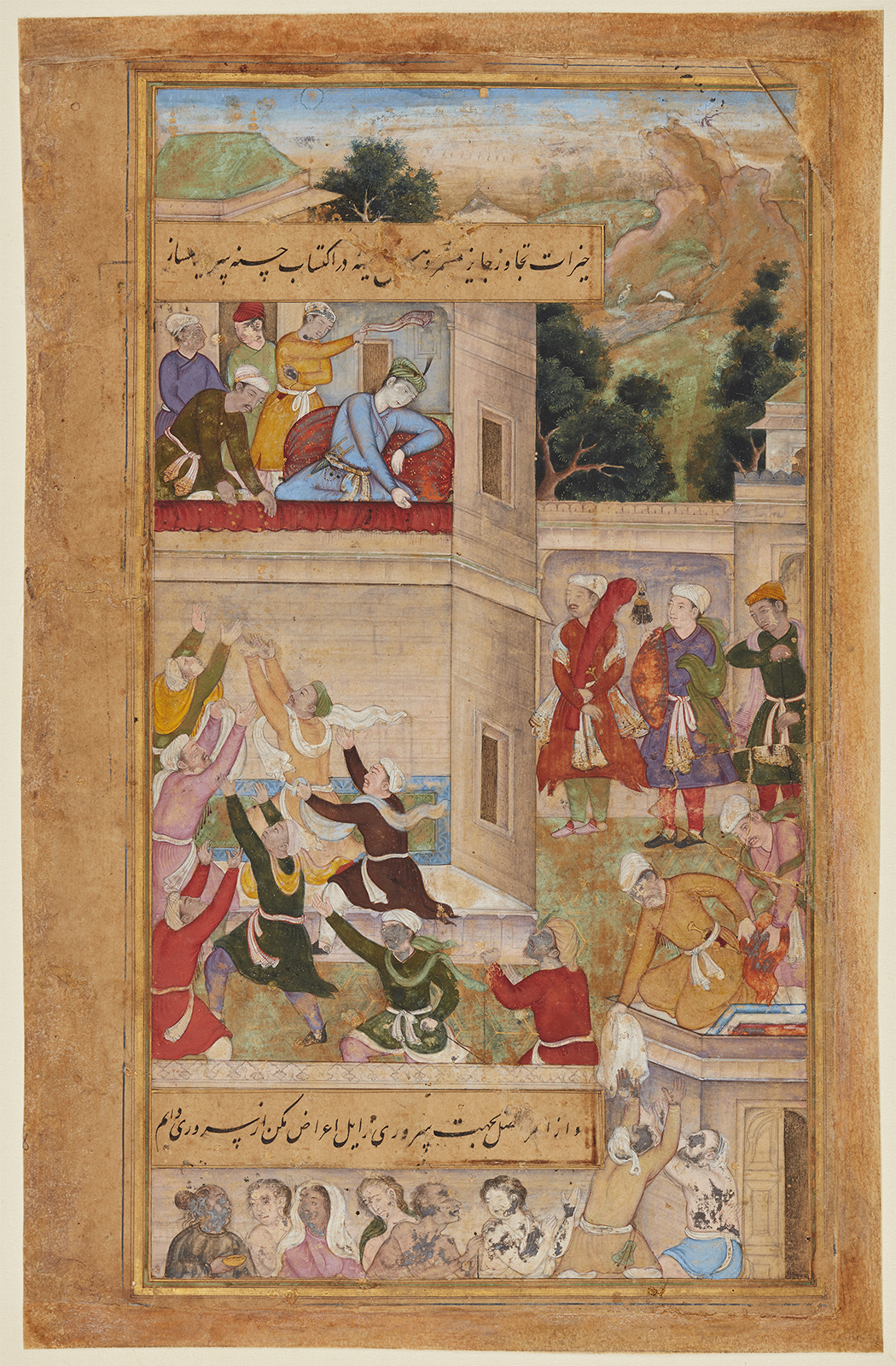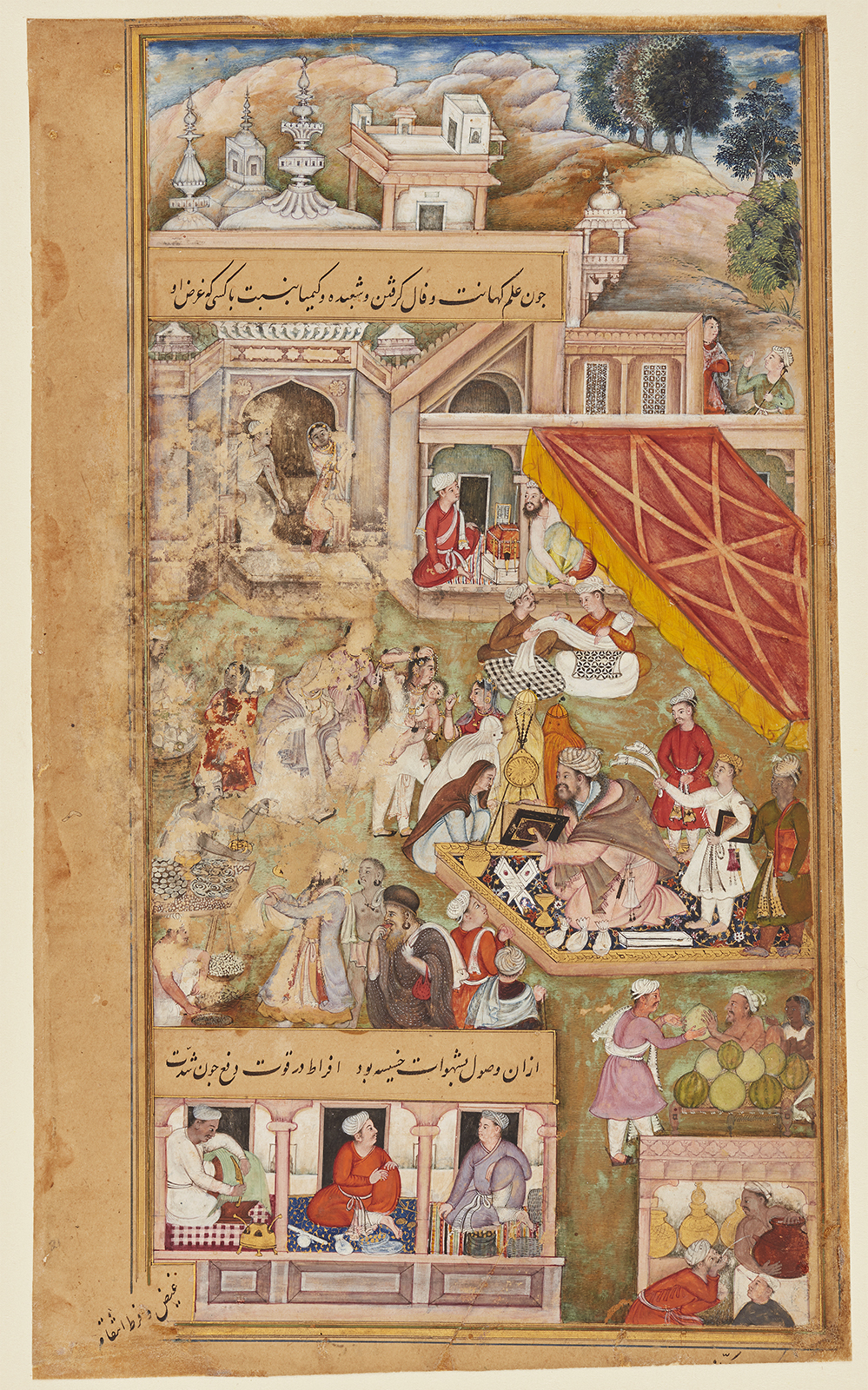AKM288.8 Fol. 149v
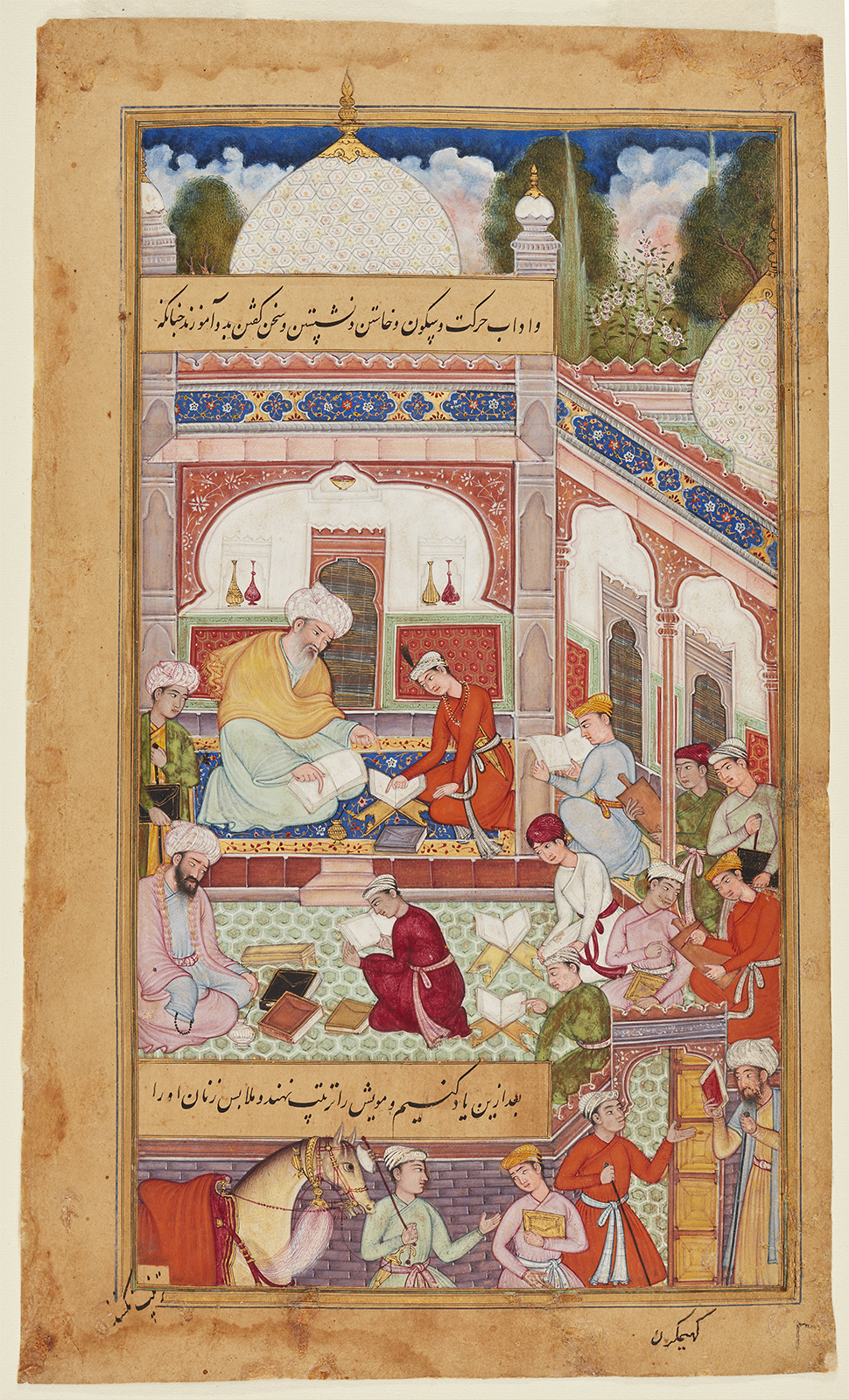
Composed in 1235 by the great scholar Nasir al-Din Tusi (d. 1274), Akhlaq-i Nasiri (“The Ethics of Nasir”) is considered the most important treatise on political ethics in medieval Persian tradition. Its thirty chapters are divided into three main sections: ethics, economics, and politics. Perhaps its most important and forward-thinking chapter considers love as the connecting force of societies. Widely popular, the text survives in a large number of copies from various periods; however, the manuscript in the Aga Khan Museum collection is the only known version containing illustrations, seventeen in total. Produced in Lahore around 1590–1595 for the Mughal emperor Akbar (r. 1556–1605), its pictures are remarkable for capturing moments of daily life in Mughal India. Akbar’s court historian Abu’l Fazl records that the emperor enjoyed listening to the text being read in courtly gatherings. This manuscript would have allowed him to appreciate it visually as well.

